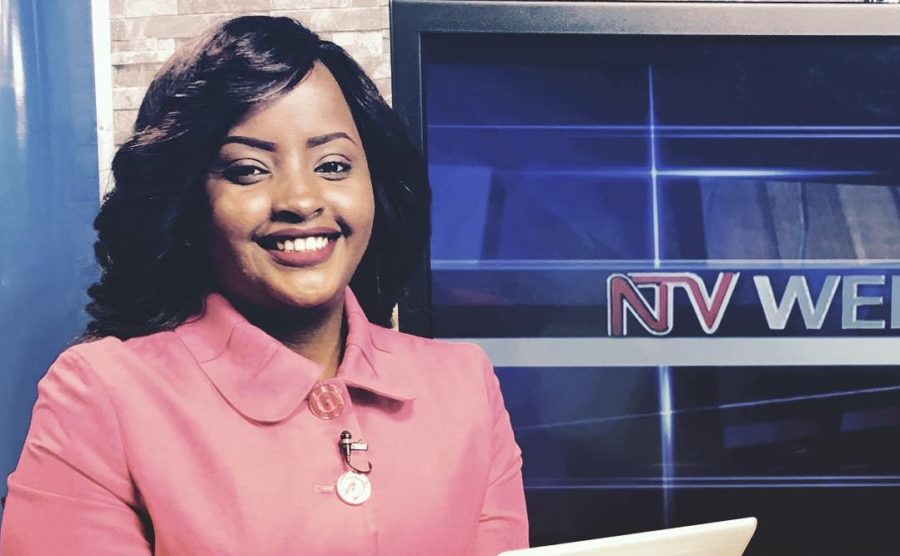Sheila Nduhukire has been a journalist for more than eight years, most recently working as a senior news anchor and reporter for NTV Uganda. She’s currently on a Chevening scholarship at Cardiff University in the UK. In this guest blog for the Foreign Office, she talks about being forced to prove herself as a female investigative journalist – and why standing up to the bullies led her to set up a mentoring group for girls.
Passion for telling stories
I began my journalism career while still at university in Uganda in 2011. I walked into the Daily Monitor [a leading independent newspaper in Uganda] CV in–hand, and asked to speak to the manager. “Why do you want him?” a man I later learnt was the manager asked. “I would like to write for you. I realise you give little attention to university news in your newspaper,” I said knowingly. “But we haven’t advertised,” he said. “Well, I have a passion for telling stories and I just thought you might be looking for someone,” I told him. He asked for my CV. “Only passionate people walk into offices without there being an advert,” he said.
I was asked to report for the Daily Monitor two days later. I didn’t write many articles at the time. But the opportunity to work alongside experienced reporters equipped me with the knowledge and skills for the industry. In 2013, I won a place on the Nation Media Group journalism Graduate Trainee program, a one-year intensive journalism training in Nairobi, Kenya. There I received mentoring and training in digital, TV, print and radio journalism. When I returned to Uganda in 2014, I was among the very first multi-media journalists in the country. My skills and passion are in political and investigative reporting. That’s really where I’ve made my mark.
Drought coverage
No single day is the same in the newsroom. My mind has been wired to prepare for anything and expect everything. One of the saddest stories I did was the sex trafficking of girls. My colleague Frederick and I went undercover for a month and a half to do this story. Coverage of a severe drought in western Uganda in 2017 was another difficult story that has stuck with me. Isingiro district is the country’s food basket. But this drought – the worst drought in two decades according to the Ministry of Disaster – changed all that. Families were in some cases selling an acre of land (the size of a football pitch) in exchange for 25kgs of maize flour. In essence, these farmers were selling their most prized possession for £3. I found resignation on people’s faces and yet their determination to speak to us both humbling and sad.
Attempts to discredit female reporters
I was fortunate to be mentored by senior journalists in my early days. I was also lucky to be a part of a progressive newsroom that gave me an opportunity to report on just about anything. Especially investigations and politics that I’m very passionate about.
No amount of mentoring, however, prepares you for the fact that people, including fellow journalists, will try to create stories to discredit you as a professional. The assertions often go along the lines of: ‘How did you get that story? Are you sure you didn’t sleep with so and so?” But if a male reporter broke the same story or interviewed a key female source, there’d be no such suspicion. In fact, they’d probably get an award!
Also, as a female journalist covering what is still a male-dominated beat (because people still expect women to do the ‘soft’ stories like fashion, entertainment and parenting), you’re often dealing with people who loathe being held accountable. You’re required to prove yourself twice: as a journalist who knows her stuff and as a woman of ‘steel’ ready to take on the bullies. Male journalists don’t find themselves being forced to fight stereotypes in this way, in my experience.
A preserve of men
My beat remains a preserve of men. I can count on one hand the practising female political and investigative journalists in Uganda. I’d love to see more women do ground-breaking stories in that particular space.
Partly as a result of my battles challenging the stereotypes of women in journalism, I now run a mentoring group of young girls in Ugandan universities. My message to the women I mentor is this: whether you’re a lawyer or journalist, CEO or janitor, consistency and knowing why you’re doing something are for me second only in importance to God.
The UK and Canadian governments are working together to defend media freedom and improve the safety of journalists who report across the world. Jeremy Hunt, the UK Foreign Secretary and Chrystia Freeland, Canadian Minister of Foreign Affairs, will co-host the Global Conference for Media Freedom in London on 10 and 11 July 2019. Government and civil society leaders from around the world, including African nations, have been invited to attend.

